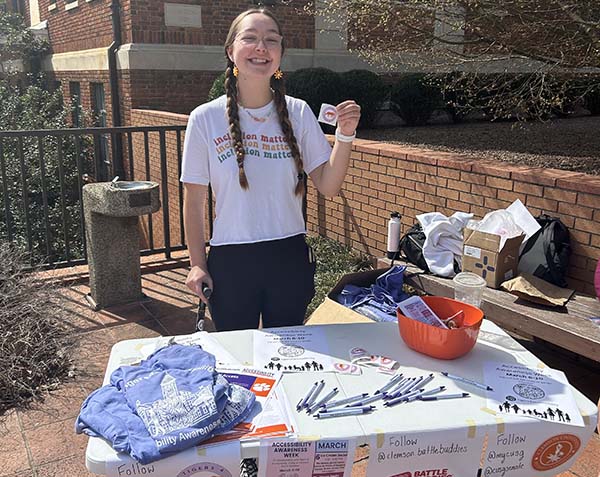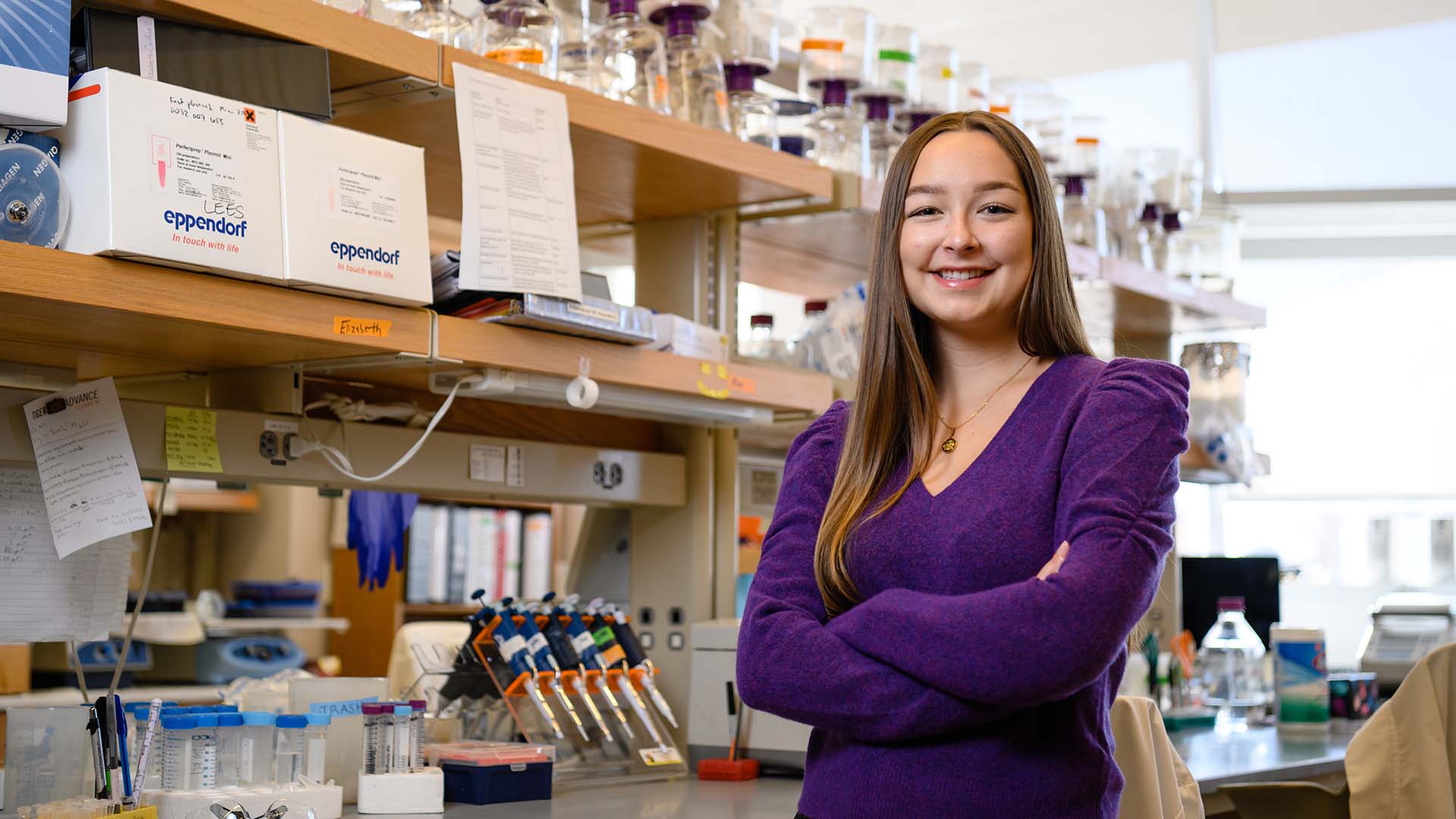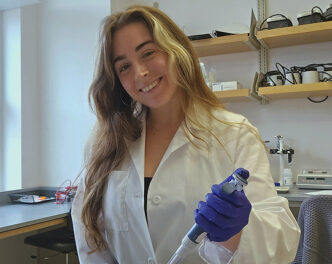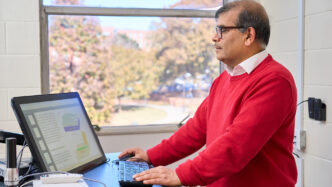Clemson has its first finalist for the prestigious Truman Scholarship since 2021.
Elizabeth Caldwell, a junior genetics major with a biochemistry minor, was one of 191 candidates from 136 colleges and universities selected as finalists for the Truman Scholarship. She is one of two finalists from South Carolina.
The Truman Scholarship, named in honor of the late U.S. President Harry S. Truman, is awarded to high-achieving college students who show commitment to public service and the potential to continue that service beyond graduation. The scholarship provides up to $30,000 for graduate study in public service fields and leadership training.
Elizabeth’s excellence shines through in so many ways, both in and beyond the classroom and lab. Her passion for improving the lives of others through both research and hands-on involvement will no doubt leave a positive mark on the world for years to come. Elizabeth is so deserving of this recognition.
David Clayton, chair of the Department of Genetics and Biochemistry
Truman Scholars are selected based on their records of leadership, public service, and academic achievement, said Robyn Curtis, director of Clemson’s Office of Major Fellowships.
“As I have gotten to know Elizabeth over the last 2.5 years, again and again, I have seen her embody persistence and resilience,” said Curtis. “These characteristics will serve her well in her planned career in medical research of rare diseases and advocacy for healthcare access, particularly for people with disabilities.”
Caldwell researches rare diseases in Clemson’s genetics department, a focus that is rooted in her personal experience.
Since being diagnosed as a teenager with Ehlers-Danlos syndrome, a rare disorder that affects the connective tissue in her body, Caldwell has been determined to find answers for under-researched diseases like hers.
She plans to work at the intersection of medicine and healthcare policy, with a focus on addressing patients with rare diseases.
“My first-hand experience with a disability has shown me that it often adds another financial burden to the cost of a patient’s healthcare,” said Caldwell, who is also an Honors student and National Scholar. “I want to take my perspective, see patients, do the necessary research and then advocate for a policy that helps my patients receive the care they need.”
Last summer, Caldwell interned at St. Jude’s Pediatric Oncology Education program, with her work leading to a coauthored publication in Leukemia. She also participates in the CURES program, a collaboration between PRISMA Health and Clemson that blends clinical research with medical shadowing experience.
Caldwell’s advocacy extends beyond her research and into making campus a more welcoming place for students with all abilities. For example, she is the only undergraduate student currently serving on President Clement’s Accessibility Commission, which works to ensure that students, employees, and visitors with a diverse range of abilities have the tools needed and environment to be successful.

Caldwell also championed disability awareness as the focus of her National Scholars cohort’s required community engagement project. With the support of their cohort, Elizabeth and three other scholars founded Tigers 4 Accessibility, which aims to decrease the stigma surrounding disability while promoting disability inclusivity and physical accessibility on campus.
Last year, the club hosted its first-ever annual Accessibility Awareness Week, including a series of educational events that engaged over 100 students and fundraised for the Kids Equipment Network, helping to provide mobility aids to children in need. Tigers 4 Accessibility is now officially a recognized student organization that is growing and thriving.
Caldwell is also making a difference in the broader Clemson community. She volunteers at the Clemson Free Clinic, a local medical center that provides health care to the area’s low-income population. While at the clinic, Caldwell volunteers with multiple physicians, assists during patient visits and works with the Produce RX program that offers fresh produce and nutritional education for clients.
When she saw a need for funds to provide durable medical equipment to the Free Clinic patients, she created the Mobility Aid Program to raise awareness and organized fundraisers to purchase medical equipment.
“I pitched my idea for the Mobility Aid Program because I’ve seen patients come into the Clinic since day one who are not able to treat their disability properly. If they could, they would likely have a better quality of life, which should always be a priority.”
Caldwell’s program helped raise funds that allowed the facility to make its first round of equipment purchases last month, with more planned for the future.
“Something as simple as orthopedic shoes can completely change somebody’s life, and it’s something so small that you might not even think about it, but for some patients, that purchase is completely out of the question because of the money involved,” added Caldwell.
Truman Scholarship finalists will be interviewed by the Truman Foundation’s Regional Review Panels in March and April, and the 2024 Class of Truman Scholars will be announced on April 19.
Since the origin of the Truman Scholarship in 1975, four Clemson students have been named Truman Scholars: Veronica “Ronnie” Clevenstine in 2021, Ashni Bhojwani in 2020, Killian McDonald in 2017 and Joyce Baugh in 1979.
Students interested in applying for the Truman Scholarship or other major fellowships should contact the Office of Major Fellowships at 864-656-9704 or fellowships@clemson.edu.







